Words and photography by Elana Emer
Content warning: This photo essay deals with sexual violence, depression and anxiety
Oftentimes, mental health gets intertwined with sexual health. With this collection of photographs, I wanted to explore those experiences through intimate portraits with people close to me.
In my interviews with the subjects we examined just a few sides of mental health. My friend Kat spoke about their gender identity while getting into drag for a performance, my grandmother talked openly about her depression after getting married young and my friend Eric shared with me the story of his sexual assault in the place where it happened.
The following photographs are a selection of curated images that speak to who these people are when they are being authentically themselves.
Cheating Gender
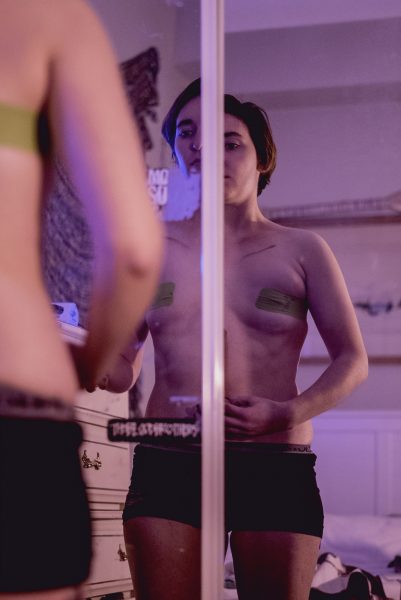
“Stavros is my base persona, he’s a Toronto Greek bad boy that lives in his Grandma’s basement,” they told me as they exhumed their drag bag from the depths of their bedroom floor and showed me the array of costumes inside. “Getting ready for so long helps me feel more comfortable changing my look and getting into character. It feels good to be a different version of yourself for a night.”
Kat binds with athletic tape. When I remarked about this being painful, they simply said “it hurts less than duct tape.” Although later in the night they offhandedly mentioned that, “my nipple is piercing my rib cage.”
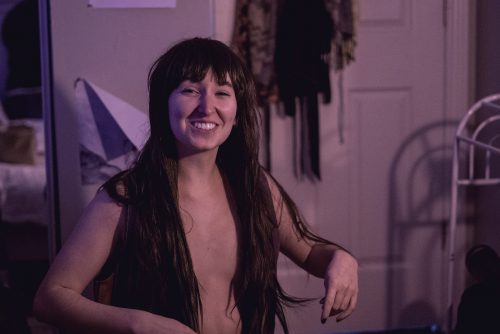
“I think for Queens and Kings starting out it’s the same level of difficulty and nervousness, and learning how to shape your body [in order] to cheat your gender a little bit. But I know there’s kind of a divide…the benefit that Drag Queens get over Drag Kings is pretty vast. At the end of the day it’s still men, and mostly white men, who are Queens, [who] are getting those kinds of opportunities and funding to do the shows. It’s harder for Kings to get shows, but Kings and other gender performers are just as entertaining.”
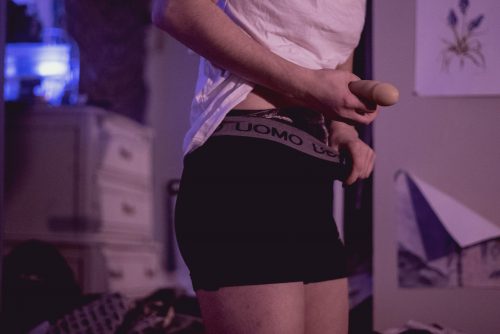
I asked if their family ever comes to see them in the show, they shook their head. When I asked if they ever invite them they said yes, but instead of coming, “they text me and say I thought you liked being a girl.“
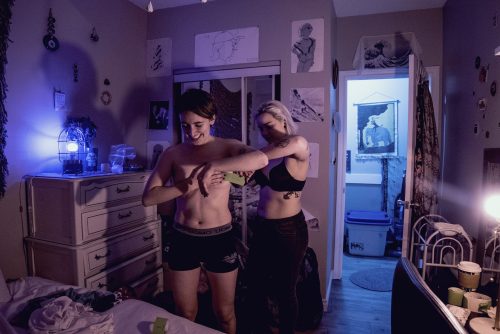
After binding is done and their costume is prepped, the makeup begins. Kat contoured their ab muscles, collar bones and hip bones before thickening their eyebrows and adding a moustache. “I feel very confident in drag, being male in drag is my way of getting out all of the masculinity I was not allowed to show publicly growing up. I feel comfortable presenting male even more now on a daily basis, it really helped me transition to how I look now. But in full drag I feel so different, I get to be basically a caricature of myself.”
Kat shared with me that coming out has been invaluable to their mental health. “I feel like myself for once, I feel so happy knowing I don’t have to hide myself anymore.”
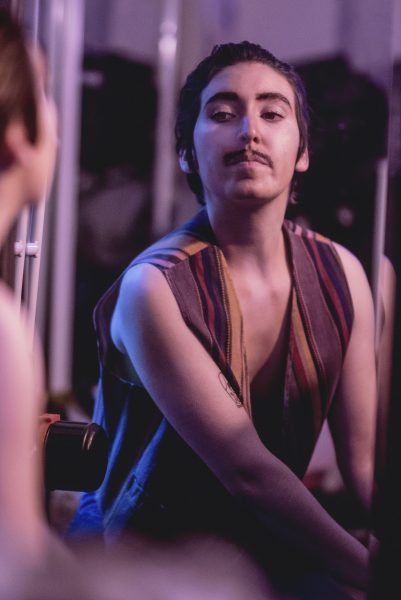
Handling Myself
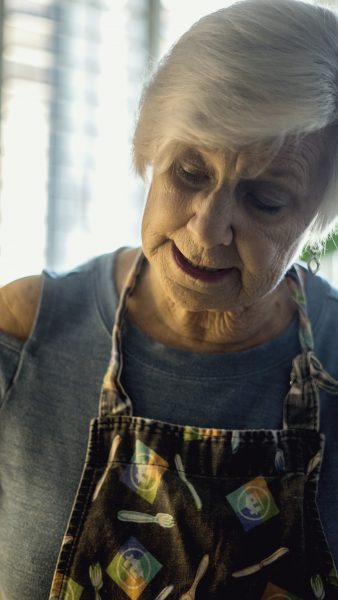
Buby Florene was very open with me about her struggles with depression in the 1970s. When she started dating my Zaidy around age 18, Florene was very shy and reserved, a stark contrast to his family. “I really didn’t know how to handle myself. So I think as situations arose I started to really withdraw. I would start getting very unhappy, unhappy with myself, and I would let these things fester inside me and I would blame everybody else for my own inadequacies.”
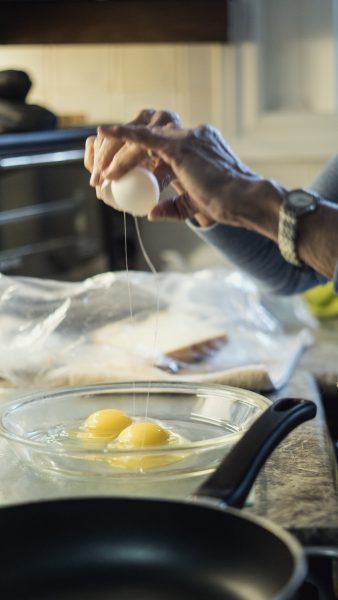
“We got married and everything was fine, but I was a very needy person. I would cry a lot at night, things would just overwhelm me. It wasn’t because I got married [so young], I mean I just don’t think I was emotionally ready for anything, never mind marriage and having kids. I really wasn’t emotionally ready, but in those years you never thought of that because that’s what you did. I certainly wasn’t ready to deal with life, but I did.”
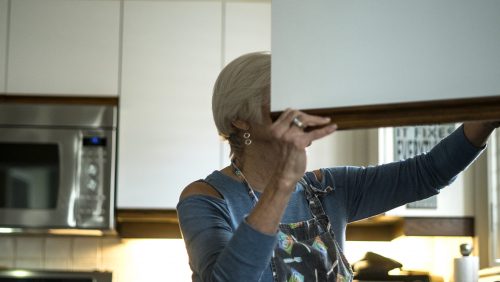
I asked her about the culture that surrounds mental health today and what it was like growing up in a time when that wasn’t the case. She told me that because her father had died when she was fifteen, and her mother was an immigrant dealing with the loss of her husband, that she grew up in a household where feelings were never discussed. A house of four women who got along in their own way but without any real connection. “Or maybe that was just me. I don’t want to say I wasn’t a part of my family, but we were sort of disconnected, all of us. My mother didn’t talk about feelings, you just did what you had to and that was it.”
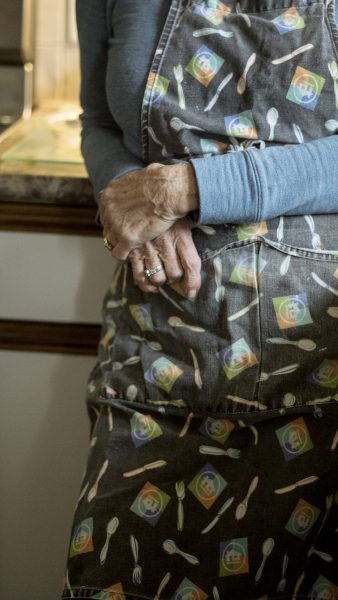
“I think it’s fabulous! It’s out in the open, that we understand it more and that we’re more forgiving,” she said, talking more about today’s positive attitudes towards mental health. She admitted that depression and anxiety look a lot different today than they did back then. “Would it have been easier? Maybe…I really don’t know.”
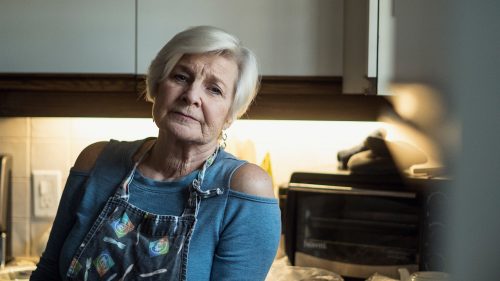
Cold Hands
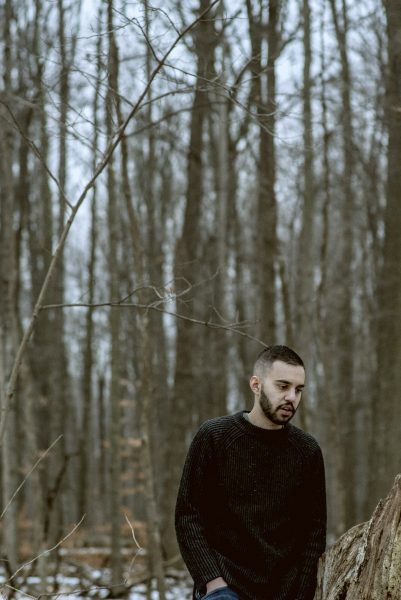
It happened on a Tuesday night. It was raining, and his family was waiting for him to come home so they could watch the popular musical TV series Glee. At 16, my friend Eric was sexually assaulted in the forest behind his house—an experience that he has bravely been very open about through his art. We went back to that forest so that I could photograph him, and he shared his story with me.

Eric befriended his abuser several months before the incident, when he found him at school getting bullied by another student and stepped in. About four months later, he and the boy who bullied his yet-to-be abuser were on a class trip together where they shared a room. Eric spoke up about what he saw that day to the bully. The bully responded by warning Eric about his new friend, saying he was bad news and that Eric should stay away from him. Eric brushed this off.
Eric’s abuser would continually ask Eric to hang out. “Inviting people over to my house is a really big deal for me. If you’re invited to my house that’s because I trust you, so I felt very uncomfortable with that. I just never liked the way he acted towards me.” The boy kept insisting, and eventually showed up at Eric’s house. They and two other friends went into the forest where Eric was then assaulted. “I remember after that happening feeling very violated…A little while went by before I said anything.”
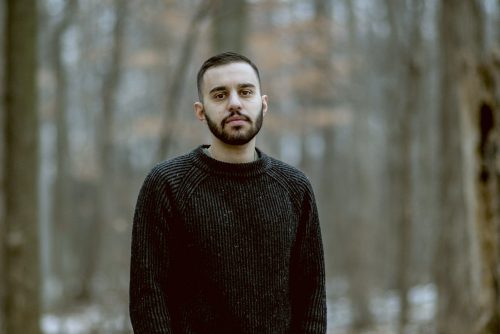
Eric was honest about his emotional decline after the assault, particularly after he reported it to the police. “It set off my depression for sure.” Right before his case went to trial, the abuser pleaded guilty. Eric still doesn’t know why he decided to do that.
“But before he pleaded guilty there wasn’t a conclusion in sight, and I told my mom that I just wanted to end [my life]. There was just no point. She was totally calm. Tense—but she didn’t freak out. She just wanted to know why I thought that was the solution, and I couldn’t think of a reason. That’s when she came out to me about her assault story.
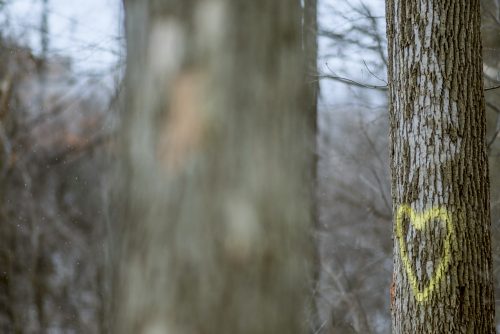
In Grade 12, Eric was part of a creative writing class where one of the exercises was to write for five minutes straight. Eric ended up writing about his court hearing and at the end of the year he had a short story about his experience in the forest, which he used to apply to film school. By his fourth year of university Eric had a short film script, Cold Hands.
Eric finally felt some closure. “I was just crying and crying because I was like, ‘I think this is it.’ At that point it was the accumulation of four or five years of writing, and I guess it just felt like a relief. Almost like something that’s on your chest, and you’re [putting it away].” He has continued to feel that way with every new step the film has taken, from festival screenings to online distribution. “The other day, I told my mom I think this is the end.”
The dedication on his film reads: For my mother. Thank you for helping me choose life.
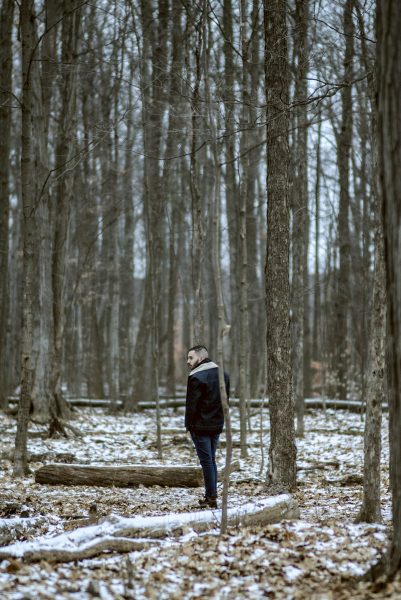

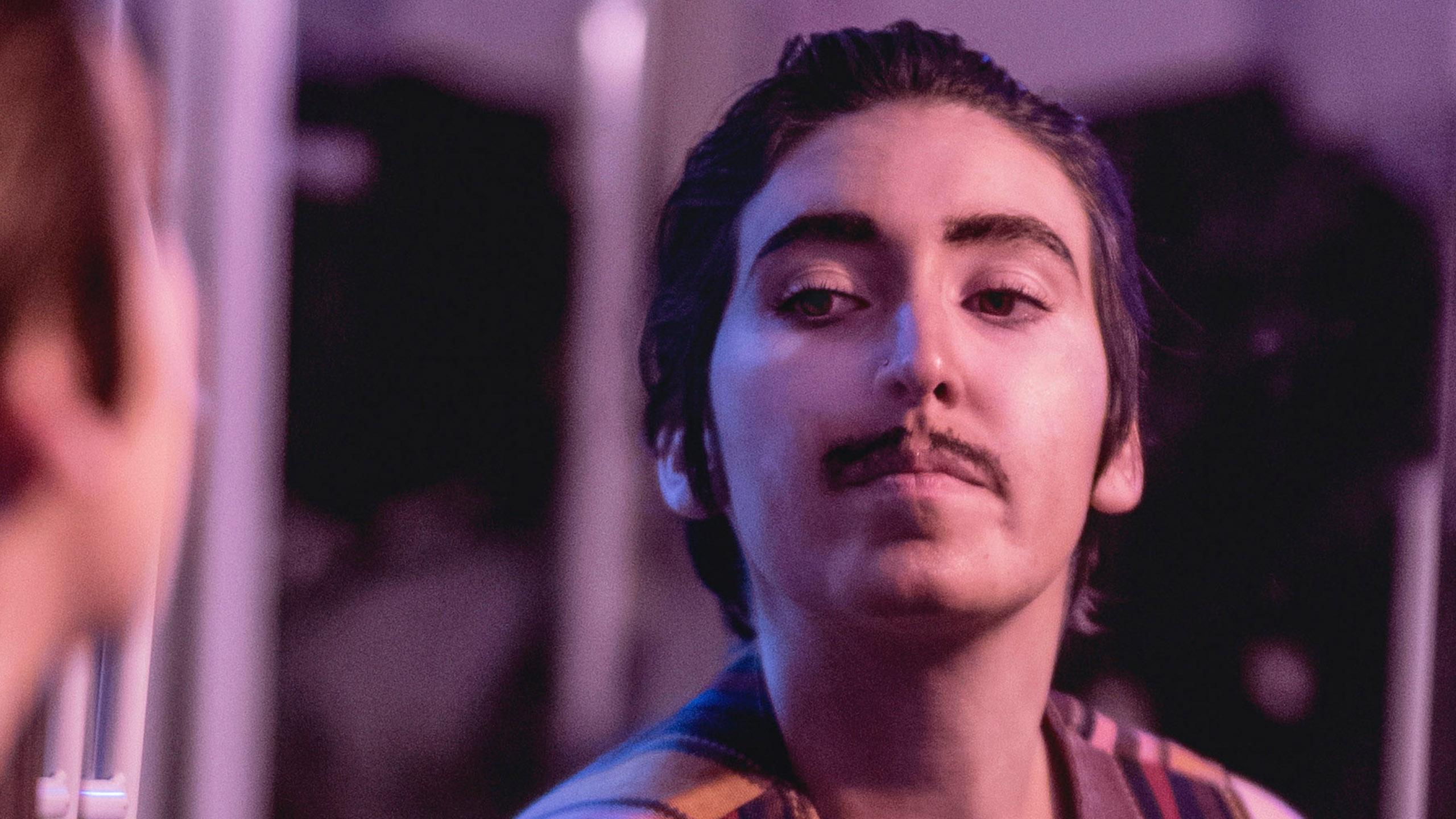









Leave a Reply